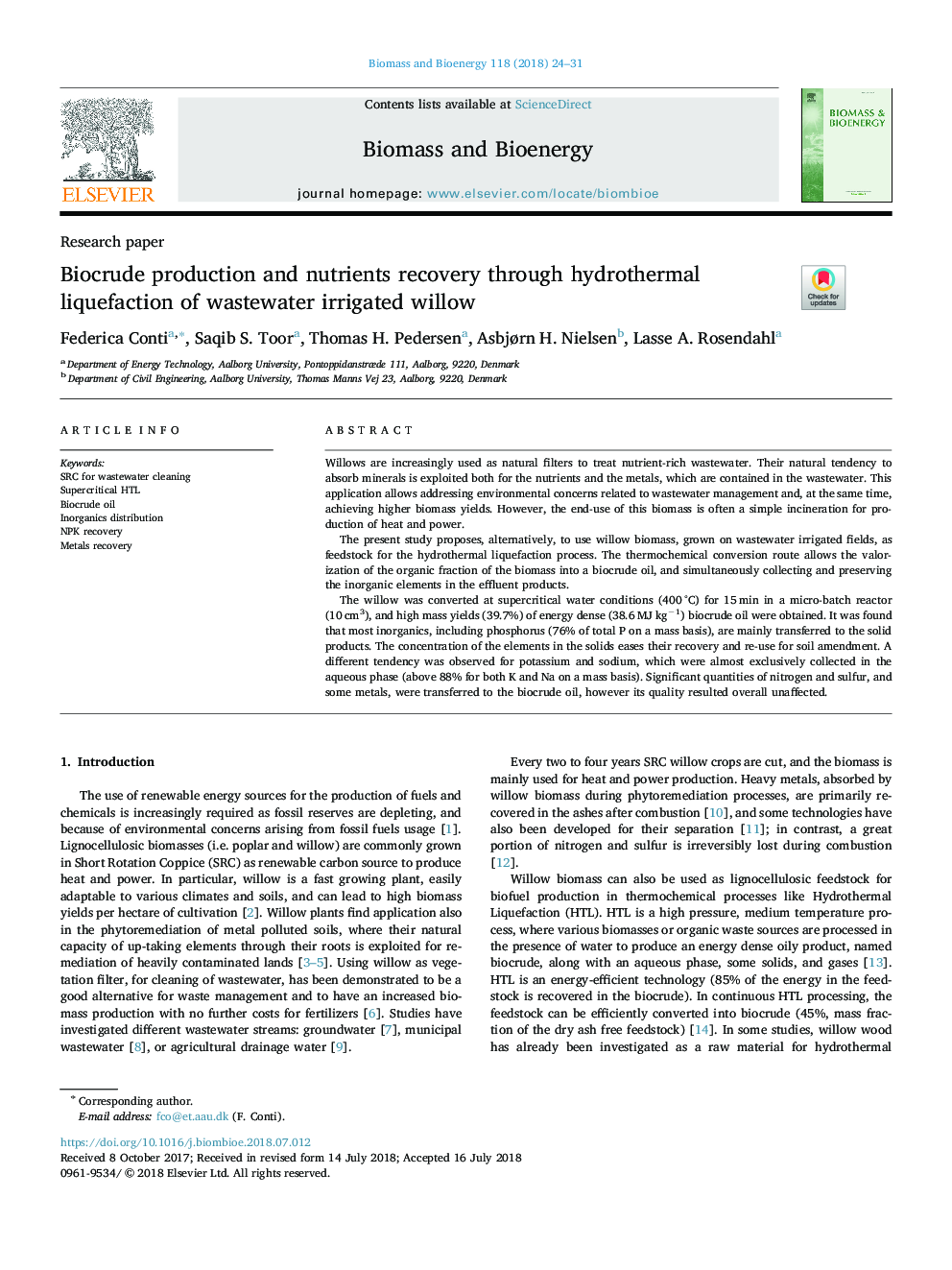| Article ID | Journal | Published Year | Pages | File Type |
|---|---|---|---|---|
| 9952663 | Biomass and Bioenergy | 2018 | 8 Pages |
Abstract
The willow was converted at supercritical water conditions (400â¯Â°C) for 15â¯min in a micro-batch reactor (10â¯cm3), and high mass yields (39.7%) of energy dense (38.6â¯MJâ¯kgâ1) biocrude oil were obtained. It was found that most inorganics, including phosphorus (76% of total P on a mass basis), are mainly transferred to the solid products. The concentration of the elements in the solids eases their recovery and re-use for soil amendment. A different tendency was observed for potassium and sodium, which were almost exclusively collected in the aqueous phase (above 88% for both K and Na on a mass basis). Significant quantities of nitrogen and sulfur, and some metals, were transferred to the biocrude oil, however its quality resulted overall unaffected.
Keywords
Related Topics
Physical Sciences and Engineering
Chemical Engineering
Process Chemistry and Technology
Authors
Federica Conti, Saqib S. Toor, Thomas H. Pedersen, Asbjørn H. Nielsen, Lasse A. Rosendahl,
